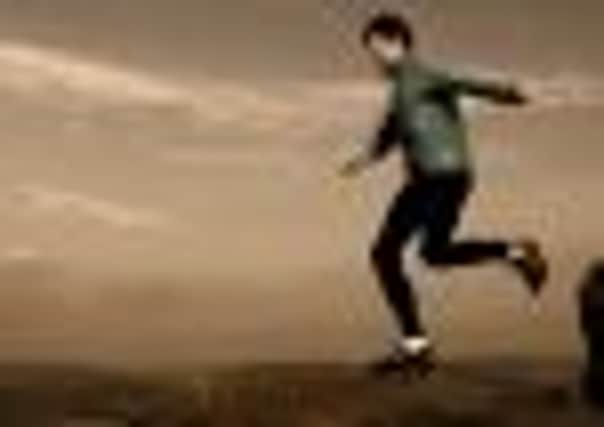Book review: Run Wild


Run Wild
by Boff Whalley
Simon & Schuster, 288pp, £14.99
THERE was a band who made it big in the mid-1990s. Maybe you remember them. Their name was Chumbawumba and their biggest hit was Tubthumping (“I get knocked down, but I get up again …). Coming back to you now?
Boff Whalley is lead guitarist of that band (they finally split up earlier this month), and is quite the tubthumper himself (def: “To argue for or promote something vigorously”). But his gospel of choice is not the clichéd rock star chorus of social politics or of feeding the world. His biggest passion is for wild running. Off-road running. Fell running. Any kind of running, basically, that isn’t on the road.
Advertisement
Hide AdAdvertisement
Hide AdHis book is a rallying cry to leave the pavements behind and head for the hills, to rediscover the childish joy and playfulness that comes from being outdoors, unrestrained by walls and traffic lights and architecture. It is also part biography, part social history, quoting in the process philosophers, idealists, anarchists, great thinkers, poets ... and Oprah Winfrey.
Brought up as a Mormon, he describes his message as a “political philosophy of off-road running” and writes passionately and evangelistically about the world around us. In places, it is really quite beautiful. But he admits to a “snotty belligerence”; confesses to being “churlish”, a “killjoy, the naysaying party pooper”. The target for this whining? The marathon. His book, as well as being a bible for off-road runners, is a damning indictment of what he sees as the monster that is the modern marathon. “Wild running,” he writes, “is the perfect antidote to that mammoth, and is additionally … a way back to the simple love affair between our running feet and the twisting, higgledy-piggledy world we live in.”
But in taking a swipe at the marathon – and road running in general – he lands a dirty great right hook in the chest of millions of ordinary runners who hit the streets daily, to work off stress, to lose weight, to enable them to eat that cream cake or get into those skinny jeans … whatever the reason, it is clearly not as worthy as Whalley’s own desire to cut loose and commune with nature. Nor are the road runner’s shin splints or aching knees or inflamed Achilles tendons as worthwhile injuries as his gashes, cuts – and potentially much, much worse – sustained during a steep 3,000-foot descent of a mountain in the dark or the snow or the descending mist. “They’re just markers on a path, notes in a diary. A record of the literal highs and lows, the hard and the soft, the flat and the steep. Experience written on the body.”
His constant tubthumping against road running is tiresome and laboured – “I’ve long since given up trying to understand this religious communion with the pavement, this Sunday service at the shrine of concrete, feed stations and chafing thighs”. Like a politician dissatisfied with preaching his own policies, he can’t resist a dig at the opposition as well.
But the road isn’t the opposition. The two can co-exist in harmony, given half a chance. Preach the gospel of the grass, shale, rocks and rivers by all means, but lay off the rest of us who, for whatever reason, can’t get to wild places.
“I can’t help myself,” says Whalley. “I’m a born-again wild runner, and, friends, I need to tell you about it. Heeeaaal! How can I begrudge the Mormon spirit of door-knocking?”
If all off-road runners are as prejudiced and self-righteous as Whalley, I’m not sure I want to join that cult.